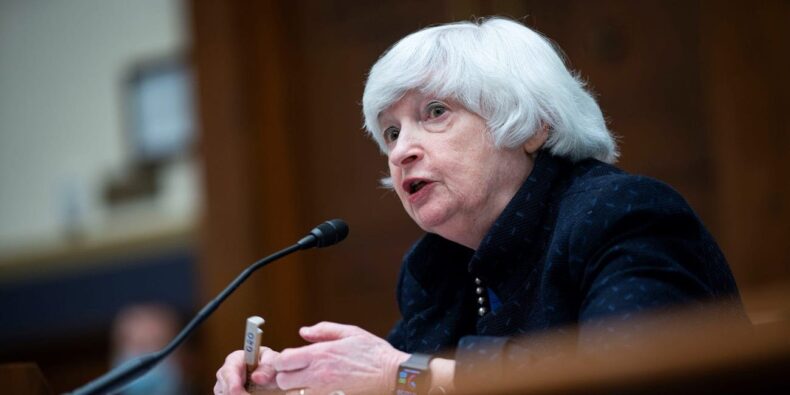In an increasingly interconnected global economy, the battle for influence between the United States and China has extended beyond their respective borders. Treasury Secretary Janet Yellen recently emphasized the significance of international financial institutions (IFIs), such as the International Monetary Fund (IMF) and the World Bank, as crucial tools for the United States to counterbalance China’s growing influence in the developing world. Yellen’s remarks highlight the divergent approaches of the two superpowers and their competition for economic sway.

American Leadership at IFIs
Yellen emphasizes that American leadership within institutions like the IMF and World Bank serves as a cornerstone of engagement with emerging markets and developing countries. By actively participating in and guiding these institutions, the United States can shape the policies and practices that promote economic stability and development worldwide. This leadership role enables the United States to align the IFIs with American values, such as transparency, accountability, and respect for human rights.
Real Resources for Global Challenges
Yellen underscores that IFIs play a vital role in addressing various challenges faced by the global economy. With their ability to provide real resources, these institutions offer financial support and expertise to help countries weather economic storms and foster long-term economic development. The IMF, through its lending programs, assists countries in overcoming financial crises and promoting macroeconomic stability. The World Bank provides financial and technical assistance for development projects, focusing on poverty reduction, infrastructure development, and social programs. By leveraging their resources, the IFIs contribute to global economic growth and stability.
Countering Nontransparent Lending
Yellen highlights the importance of IFIs as counterweights to China’s lending practices, which are often criticized for lacking transparency and sustainability. As China emerges as a major lender to developing nations, concerns arise regarding the implications of its loans. Yellen’s remarks signal that the United States views the IFIs as alternatives that offer more transparent and sustainable financing options. By supporting these institutions, the United States aims to provide developing countries with a viable choice that aligns with international standards and promotes responsible lending practices.
The Battle for Influence
Yellen’s comments shed light on the ongoing competition between the United States and China for influence in the developing world. As China expands its economic reach through initiatives like the Belt and Road Initiative, it has become the largest official lender to many impoverished nations. This amplification of China’s presence raises questions about its intentions and the potential risks associated with its lending practices. Yellen’s emphasis on American-aligned IFIs reflects the United States’ desire to maintain a strong presence and ensure its values are upheld in the face of China’s expanding influence.
China’s Response
In response to Yellen’s statements, China’s Foreign Ministry spokesman, Wang Wenbin, emphasized that the IMF and World Bank should reflect the interests of all member states and serve as platforms for international cooperation. China argues that these institutions should promote greater democracy in international relations and act as channels for collaboration among nations. This response highlights the contrasting perspectives of the United States and China regarding the role and influence of IFIs.
Treasury Secretary Janet Yellen’s testimony underscores the significance of international financial institutions, such as the IMF and World Bank, in countering China’s influence in the developing world. By engaging with emerging markets and providing real resources, these institutions reflect American values and offer transparent and sustainable alternatives to China’s lending practices. The battle for influence between the United States and China underscores the divergent approaches taken by the two superpowers and their competition to shape the global economic landscape. As the United States seeks congressional support for its financial backing of IFIs.
Category: World News, Economy
Tags: America, China, World













